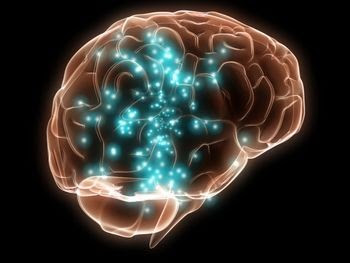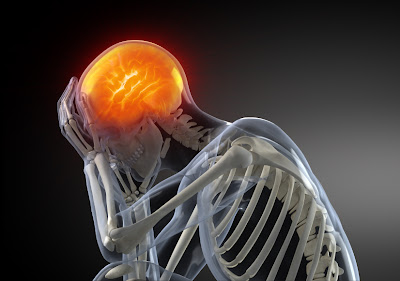Dec 28, 2013
Time to decide...
Labels:
cleanse,
difference,
empathy,
I can do this,
inspire,
soul
Sep 4, 2013
Taming the gadget monster
Parenting: A challenge
Your children need you more than you will ever be aware of.
Inside that little monster who seems to ‘like’ troubling you and testing your
patience after you’ve had a hard day at your workplace, is the angel who wants
you to guide her, do things for her, teach her and help her because she cannot
help herself enough. Children need you to set things right for them all
the time. Set their beds, their clothes, their schoolbags, homework, books as
well as their limits and goals and their life…
Labels:
behavioral,
children,
emotional,
gadgets,
I-Pads,
neuronal activity,
parents,
psychological,
side-effects,
smartphones
Aug 27, 2013
Aug 23, 2013
Aug 14, 2013
Jul 31, 2013
Teens: Don’t be drama queens!
All the world’s a stage
“All the world’s a stage and all men and
women must play their part”
Rightly said, Shakespeare’s words
adjudicate human exaggeration of emotion and justify the dramatization and
flamboyant expressiveness of sentiments. There are always those moments that
render mankind vulnerable, helpless and susceptible to a dwindling balance of
reaction; however repeated exaggeration of this sort solidifies this behavior,
which then becomes part of the ‘dramatic’ individual’s persona.
Labels:
act,
attention,
drama,
ego,
equanimity,
exaggerate,
introspection,
overreact,
react,
responsibility,
self development
Jul 30, 2013
Jul 3, 2013
Jun 30, 2013
Activate the guilt centre
Ways of the world
Everything we do is not always streaked
with morality. The world survives and thrives on logic and analytical
application of carefully deliberated information. The classic systems in place,
education, information, communication, technology, industries, businesses,
research and development; all apparently base themselves on the needs of
society and the duty that each doer performs to oneself and the world. This is
expectantly with the hope of making the world a better place for the survival
of the self as well as generations to follow. Does that leave any room at all
for morals and righteousness and would they play a role in anything at all in
the world today?
Labels:
amygdala,
ego,
guilt,
id,
inner voice,
just,
morality,
righteousness,
sickness,
super-ego,
world
May 31, 2013
Schizophrenia: What we don't know
A special day?
24th May was World Schizophrenia Day. While we dedicate one day of the calendar year to some or the other illness these days, it's still a distant dream to enhance awareness and appropriate education about different physical as well as psychological conditions; sufficient enough to enable each one of us to take the right steps towards identifying them and treating them appropriately. More so in psychological conditions like schizophrenia. Frequently misconstrued as witchcraft, outcome of sins, possession by spirits or just simply insanity that warrants punishment; schizophrenia is rarely well understood and appreciated as a medical illness that deserves medical care and nursing just like all physical other illnesses.
24th May was World Schizophrenia Day. While we dedicate one day of the calendar year to some or the other illness these days, it's still a distant dream to enhance awareness and appropriate education about different physical as well as psychological conditions; sufficient enough to enable each one of us to take the right steps towards identifying them and treating them appropriately. More so in psychological conditions like schizophrenia. Frequently misconstrued as witchcraft, outcome of sins, possession by spirits or just simply insanity that warrants punishment; schizophrenia is rarely well understood and appreciated as a medical illness that deserves medical care and nursing just like all physical other illnesses.
Labels:
awareness,
care,
chemical imbalance,
compassion,
cure,
medication,
myths,
retardation,
schizophrenia
May 20, 2013
Power to women
How change occurs
Childhood is the phase of instillation of value systems.
From a scientific as well as research perspective, behavioral change never occurs
overnight. Revolution takes place over time. To get a good plant we need to sow
the right seeds and offer them the appropriate nourishment throughout the
growth phase. Weeds don’t become nutritious edibles overnight; thus solutions to
social problems like crime against women can never be immediate.
Labels:
change,
crime,
culture,
denigration,
disrespect,
honor,
male dominance,
manliness,
respect,
revolution,
women
Apr 30, 2013
Success Drivers

Need for success
Everyone doesn’t feel the itch to succeed.
Some yearn for it relentlessly but fail to achieve it; others seem nonchalant
about it and are always accomplishing tough goals with poise. Success has distinct
definitions for different people. Nonetheless, the Olympic gold for the runner equates
the daily target of the minimum wage earner when he earns his daily bread;
success is sweet, success is rewarding and success is desirable. That definitely
makes success worth the effort needed to achieve it…
Labels:
critical,
expectations,
hard work,
luck,
optimism,
patience,
preparation,
review,
sanguine,
success,
will
Dance Therapy
Movement and the mind
Bodily movement is closely related to energy levels in the
mind. Various pathologies in the brain reflect themselves through physical agility
as well as immobility. Depression is well known to bring about anergia,
diminished activity, over sleeping as well as ‘lazy and inert’ tendencies.
Mania on the other hand is characterized by excessive activity, unrealistic
bursts of energy, and ‘hyperactive tendencies’ with lessened need to rest.
Movement is certainly more significant than the cognizance it receives in the
world today. It arouses sub-conscious emotional, cognitive, social and
behavioral changes. Dance and movement as a therapeutic modality have developed
over the past few decades. Dance therapy is one of the most effective
‘expressive therapies’ today.
Labels:
cortisol,
coscious change,
dance,
min-body connect,
movement,
stress
Apr 29, 2013
Dual Sex Therapy
Sexuality is an important component of existence, a basic human need and a non trivial factor in assuring holistic health and wellness. Passion drives all humans. Understanding human sexuality, it's mandates, requisites and preferences is essential to attain fulfilling sexual experiences. Sexuality isn't a taboo as once was deemed. It is a matter of deliberate choice and making the right choice for oneself is always prudent. A blend of the appropriate desire to please and the incessant will to satisfy; over and above the wish to experience pleasure oneself drives the sensual soul. Sex therapy is aimed at increasing personal and interpersonal awareness of self as well as the other's needs. Each participant is encouraged to focus on their own varied sensual experience rather than to see physical satisfaction as the sole goal of a sexual encounters. This enriches the self as well as the relationship.
Labels:
behavior,
communication,
connect,
inhibitions,
love,
passion,
please,
satisfy,
sensate focus
Apr 28, 2013
Building Experiential Wisdom
Intellect and its essence
Intelligence does not conquer all. More often than not, the
apparent high graders do not classify as emotionally intelligent. Intellectual
arrogance is the seed of downfall while humility of the unwise can work
miracles owing to the prospects it offers for learning. There isn’t much left
to discover if one knows it all. Intelligence ought to be applied perceptively
towards pertinent outcomes. Wisdom calls for the wit to apply prejudgments
optimally. As Einstein rightly put it, common sense is a collection of
prejudices acquired in the formative years of life. Therapy that inculcates
common sense is the need of the hour!
Labels:
awareness,
essence,
intellect,
perception,
permanence,
personal growth,
rudimentary,
self-change,
therapy,
wisdom
Apr 26, 2013
Transactional Analysis Therapy
Transactions in life
According to Eric Berne, life is a series of interactions between all human beings. These interactions include some exchange of thought, emotion, ideas, energies, anything at all. But there is always an exchange in the interaction. These are better understood as transactions. Everything you do with someone is a transaction. And at the end of it we land ourselves in spots that are called ‘life positions’. These are:
- I am OK you are OK
- I am OK you are not OK
- I am not OK you are OK
- I am not OK you are not OK
Labels:
adult,
ego states,
Eric Berne,
games,
ideal,
life positions,
parent child,
relationships,
transactions
Apr 24, 2013
Behavior Modification
Origin of civilization and behavior
Edward Thorndike was the first person to describe behavior therapy in 1911. He was focused on methods that modify behavior. Clearly, there was a reason to wish that some particular behavior be altered; thus implying that behavior can become malfunctioned and subsequently requires timely repair like a mechanical or electrical devices. Behavior therapy is as old as civilization itself. Asking a third person for advice regarding how to deal with the ill impact of another’s actions on oneself is behavior therapy. There are wide ranges of techniques that can be used to change the behavior of oneself or another. Pure behavior therapy without mindfulness is seen in animals (it is well understood as training). Human behavior is usually connected with thoughts and feelings. These are incorporated in the therapy paradigm.
Edward Thorndike was the first person to describe behavior therapy in 1911. He was focused on methods that modify behavior. Clearly, there was a reason to wish that some particular behavior be altered; thus implying that behavior can become malfunctioned and subsequently requires timely repair like a mechanical or electrical devices. Behavior therapy is as old as civilization itself. Asking a third person for advice regarding how to deal with the ill impact of another’s actions on oneself is behavior therapy. There are wide ranges of techniques that can be used to change the behavior of oneself or another. Pure behavior therapy without mindfulness is seen in animals (it is well understood as training). Human behavior is usually connected with thoughts and feelings. These are incorporated in the therapy paradigm.
Labels:
behavior,
behavior therapy,
emotion,
faulty,
learning,
Thorndike,
thought,
understanding,
unlearning
Apr 22, 2013
Rational Emotive Behavior Therapy
The need to solve problems
Rational emotive behavior therapy (REBT) was initially introduced by the American psychotherapist Albert Ellis in the 1950’s. It is a structured and time limited comprehensive psychotherapy that focuses on resolving emotional and behavioral turbulence in the human mind. The outcome, like all forms of psychotherapy is an enriched and fulfilling existence. As the name suggests it focuses on the rational (reasoning), emotive (feelings and emotions), and behavioral (actions) components to gain a complete understanding of the nature of one’s problems and thereby take appropriate steps to solve them.
Rational emotive behavior therapy (REBT) was initially introduced by the American psychotherapist Albert Ellis in the 1950’s. It is a structured and time limited comprehensive psychotherapy that focuses on resolving emotional and behavioral turbulence in the human mind. The outcome, like all forms of psychotherapy is an enriched and fulfilling existence. As the name suggests it focuses on the rational (reasoning), emotive (feelings and emotions), and behavioral (actions) components to gain a complete understanding of the nature of one’s problems and thereby take appropriate steps to solve them.
Labels:
adversity,
Albert Ellis,
belief,
consequence,
dispute,
enjoy,
irrational,
rational,
REBT
Apr 21, 2013
Play Therapy
Play and therapy
Play is usually identified as something
recreational, fun and participative. Using play in learning is a challenging
and innovative method to mitigate personal change. Play therapy is a form of
counseling or psychotherapy that uses play to communicate with and help people,
especially children, and it helps to prevent or resolve psycho-social
challenges. Because children cannot express themselves the way we adults can,
the use of play is thought to help them towards better social integration,
growth and development. Play therapy is generally employed with children aged 3
through 11 and provides a way for them to express their experiences and
feelings in a natural and non-threatening manner which does not intimidate them.
As children’s experiences and knowledge are often communicated through play, it
becomes an important vehicle that helps them to know and accept themselves as
well as those around them.
Labels:
abuse,
aggression,
anger,
catharsis,
conflicts,
directive,
gender troubles,
non directive,
play,
play therapy,
self expression,
unrestricted
Apr 19, 2013
Cognitive Therapy of Aaron Beck
Origin
Cognitive therapy (CT) is a type of psychotherapy that was
developed by American psychiatrist Aaron T. Beck in the 1960’s. Cognitive
therapy seeks to help the patient overcome emotional difficulties by
identifying and changing dysfunctional thinking, negative emotional responses
and the subsequent unfavorable behavior stemming from them. This process
involves helping patients develop skills for modifying their beliefs,
identifying distorted thinking and relating to people in newer and different
ways, owing to the change in behavior patterns.
Labels:
Aaron beck,
arbitrary inference,
behaviors,
beliefs,
cognitive therapy,
CT,
generalization,
irrational,
magnification,
personalization,
rational,
selective abstraction,
thinking
Apr 17, 2013
Autism: More than self-obsession
As a child progresses from a newborn to infancy to
toddlerhood, we see several developmental changes in all dimensions. The
physical bodily growth, advancement of language, communicating with words and
actions, as well as the rest of the world around; is all part of the
developmental spectrum. Sometimes some children lag behind in one or more of
the aspect of this spectrum. Such a lag in either one or all of speech,
relatedness, communication and expression leads to a problem called pervasive
developmental disorder (PDD). Autism is one such type of PDD.
Labels:
autism,
communication,
development,
interpersonal interaction,
pervasive,
sensory integration,
sociability,
stereotypy,
therapy
Apr 16, 2013
Do kids really get depressed?
Childhood is a carefree, happy and blissful time. Infanthood
as if was crafted only to be enjoyed by children (as well as their parents).
But it’s not uncommon for our little ones to feel the pressures and strains of
today’s life. They too can feel deep sadness and dejection inside their
innocent hearts and innocuous minds. Children truly know how to feel pain. They
sense deeper loneliness and neglect more than we are capable of even imagining.
Our kids ‘know’ depression. And they can experience it…
Labels:
appetite,
behavioral,
depression,
disappointment,
irritability,
neurochemicals,
parents as therapists,
physical,
recovery,
sadness,
school grades,
sleep,
worthlessness
Apr 15, 2013
Anxious about kids being anxious?
Yes our children do get anxious. They have their own set of
worries, apprehensions and fears in life. Adults feel that they have the
worldly burden on their shoulders while childhood is carefree and joyous. It’s
not always so. Childhood ‘ought’ to be happy-go-lucky and relaxed. And that is
what we have to strive for in our kids. Anxiety has been better researched
unlike other childhood problems such as autism, and ADHD. Children worry about
the smallest issues and take great levels of stress. Possibly the demands that
parents place on their kids overwhelms them. At other times children sense the
stress in the household. They know when there is friction between parents or in
laws or grandparents. They are more receptive and emotive than we ever realize.
They have self-standards too besides the ones you set for them. All these can
get quite overpowering and your little child cannot cope with it.
Labels:
anxiety,
apprehension,
diligence,
nervousness,
neurotransmitters,
physical,
psychological,
therapy,
vigilance
Apr 14, 2013
The umbrella of learning disability
LD is an acronym for Learning Disorder or Learning
Disability. Essentially the LDs comprise a series of deficits that interfere
with the child’s ‘learning’. Hence we use the term ‘disorder’. Children with LD
learn things in a manner that's different from the conventional pattern. There
may be a deficit in reading, writing, or mathematics. The processing of
information in the brain is different and the techniques used to understand
information are somehow unusual. The learning process thus becomes very tedious
in the brains of such individuals. This faulty pattern has to be corrected in
order for the appropriate learning experience to build.
Labels:
deficit,
information processing,
input,
integration,
IQ,
learning disability,
mathematics,
neurons,
organisation,
output,
perception,
reading,
remedial education,
writing
Apr 13, 2013
Not so blessed with intellect
All children are divine gifts from God. How the little
embryo transforms in to the fetus and is delivered from your being into this
universe is a miraculous process. And as much as science has progressed to help
us understand the process, we still don't know things that go on at the back
end before we get the final product in our hands. Some of our children seem to
develop and progress as per the accepted norms and stages that they must
accomplish at times in their development. However, for some reason, some
children lag behind in the same. Some in fact may be faster than their normal
counterparts while others are slower. And at times the slower ones do not have
the ability to catch up. It’s not their fault. It’s simply the way it was
destined for them. These kids who lack the ability to develop in their mind and
their abilities as they are supposed to in keeping with other kids of their
age, have intellectual deficits.
Labels:
attention,
attitude,
care,
deficit,
grades,
intellectual,
life skills,
love,
mental retardation,
parent behavior,
severe,
unconditionality
Apr 11, 2013
Good old temper tantrums
That's a fact: all kids have tantrums. Why kids: all adults
throw tantrums once in a while and this is considered normal. We all have seen
kids getting upset and crying and probably we ourselves would prefer to screech
every once in a while when life is treating us iniquitously. We cannot indeed
have a world without tantrums and frenzies. We need to understand these
tantrums better so we can take care of tantrummy children effectively…
Labels:
bawl,
demands,
expectations,
parenting,
pattern,
reinforcer,
repetitive,
scream,
screech,
sulking,
tantrum
Apr 10, 2013
ADHD: Pay attention to it
All kids are hyper
We all have seen kids getting overexcited and probably we
ourselves have been inattentive when we were kids (maybe even now). Today in
fact that 5 out of 10 kids may be hyperactive. However, similarity in pattern
and commonality of occurrence is not a defense for abnormality. We need to comprehend
ADHD better so we can take care of our children. ADHD comprises
inattentiveness, over-activity, impulsivity, or a combination. Of course these
need to be excess of normal to actually consider it to be a problem or
disorder.
Labels:
ADHD,
attention,
behavior therapy,
fidgety,
focus,
hyperactivity,
impulsivity,
inattention,
medication,
stimulated
Apr 9, 2013
Sleep: What you didn't know
Passivity and sleep
Sleep is frequently considered to be a passive phenomenon,
something we do because it's the end of the day, we are perhaps tired and we
need to rest and build up our energies once again to prepare for the next day. It’s falsely presumed that as the light is switched off at night, so also is the mind and all its
functioning ability. Rightfully so, all of the above are true to a certain extent, and
sleep replenishes zest and enthusiasm to live yet another day and accomplish
ones daily goals. However, there is more to sleeping and the dynamics of sleep ought to be better understood
by every person who has ever slept and continues to do so everyday. That makes
each and everyone of us. Ignorance is bliss but knowledge is truly an eye opener.
Open your eyes to sleep right…
Labels:
active,
allergies,
Alzheimer's,
cancer,
common cold,
energy,
enthusiasm,
growth,
preservative,
replenish,
sleep,
zest
Apr 8, 2013
Depression: What you didn't know
Ordinary sadness
The normalcy of unhappiness is less acknowledged by our society
that strives for perfection (which itself is a myth of perception).
Dissatisfaction, sadness, frustration and discontentment are all customary
reactions to anomalous events. What one chooses to do with them takes them on
the path to personal growth and transformation versus depression and
melancholy. Nonetheless cognizance of
the direction one is about to take is imperative to offer an understanding of
ones own psychological processes. There are things we know; and then there are
the masked and unknown subtleties that escape our eye. Identification of
trouble is the first most important step for solving it. Clarify the myths to bask in the warmth of reality...
Labels:
barren,
deadly,
depression,
heal,
hormones,
immune,
luck,
mind-body,
physical symptoms,
time
Apr 7, 2013
Learn to listen
The knack
Listening is one of the most used but least taught skills.
Practice does make man perfect; rehearsal and training are a mandate for any
talent acquisition. Contrary to popular belief, listening is an active
phenomenon while hearing can be passive, inert and uninvolved. Hearing is
involuntary, reflex and a function of the ear and the auditory area of the
brain. Listening on the other hand requires conscious effort and cognitive
processes to relocate the listened material into the short-term memory store
and subsequently into the long-term memory stockpile. Learning to listen
amounts to be a gainful, wise and deliberate aptitude accrual.
Labels:
attitude,
boredom,
communication,
interest,
interpersonal connections,
knack,
listening,
listening gap,
non verbal communication
Criticism: Offer it constructively (2)
Criticism needn’t essentially imply ‘fault finding’. Albeit infamously labeled as uncompassionate expression of disapproval and dissent, it is an expression of discontentment and can be presented sensitively, yet effectively. Arguments and fights can be evaded if criticism is is offered with constructive and non-derogatory intentions. Critics have often been referred to as holders of the faculty of knowledge. Those with academic superiority, and socio-emotional actualization know the content and process of criticism to assure its acceptance. If governed by politeness and decency, criticism can transform the world for the better when ground rules of its exposition are obeyed:
 Concise
Concise
 Concise
Concise
Labels:
accepting,
appropriate,
clear,
communication,
criticism,
honest,
important,
introspective,
meaningful,
relevant,
sincere,
truthful
Apr 6, 2013
Criticism: Offer it constructively (1)
Perspectives
The 14th century identified criticism purely in the literary
perspective; offering appraisal of art and literature. The 20th century saw it
approaching pros and cons and identified it as scientific activity. Currently
the 21st century is evidence to criticism being a loosely adopted method to
have objection, express dissent and reject something outright with minimal
compassion. Used meaningfully, criticism is an effective stimulus to generate
personal growth and mitigate improvement in performance. Nonetheless a tool is
not effective unless used suitably. The
content, intent and recipient ought to be fitting to make the impact. Criticism
is effective if it matches these ground rules:
 |
| there are bitter truths that need to be spoken they can however be spoken sweetly rudeness is not mandatory kindness is |
Concise
Respectful
Insightful
Truthful
Introspective
Clear
Important
Sincere
Meaningful
Labels:
challenge,
concise,
constructive,
criticism,
defensive,
genuine,
insightful,
perspective,
respectful,
truthful
Apr 4, 2013
Criticism: Take it constructively
Criticism involves judgments on merits as well as faults. It
may or may not be welcome, but taken in the right vein it can be a tool to
motivate self improvement and growth. Criticism is of great value when it comes
from reliable sources and is well presented. Nonetheless viewpoints and
prejudices of narrow-minded and self-prophesizing individuals may amount to
destructive criticism and can impact others negatively. How the world presents
things to us isn’t in our control but what we choose to do with it truly is.
Labels:
beating,
criticism,
judgment,
logic,
motivator,
narrow minded,
personally,
pinch of salt,
race,
reins,
self growth,
self worth
Apr 3, 2013
Truth about risks
Warranties
Life offers limited guarantees; the only surety is that of
its end. It is the lone truth that ought to drive each one to make wiser
choices and rational decisions. At the same time life itself exemplifies
change, growth and revolution. Effort and endurance are options, favorable
outcomes from them aren’t. All human endeavors involve risks, some more than
others. The potential that an action will lead to loss, failure and damage
exemplifies the urgency of making the right choice at the accurate moment in
the suitable situation. Risks will always exist and the fear of diving in may
be deemed sensible, however rational and sound judgment with analysis of the
aftermath usually works towards near warranties.
Labels:
accelerator,
decision making,
fear,
fortune,
luck,
mathematics,
myopic thinking,
outcome,
probability,
risk,
warranty
Apr 2, 2013
The guilty conscience
Morality
A guilty conscience denotes existence of a moral standard
within oneself; a super ego that has the ability to identify a compromise in
morality, subsequently directing an individual towards pro social acts. Guilt
is an emotion and brings out responsibility towards the violation, typically
warranting merit for the correction. Guilt can also have negative eventualities
with self-blame leading to withdrawal, self-resentment, delusions and frequently
suicide. Consciousness as well as unawareness of guilt can have ruinous
outcomes. It is imperative to understand and deal with guilt to reach a truce
in the battle between the id and ego as well as ego and super-ego.
Labels:
choice,
conscience,
conscientious,
counter-guilt,
ego,
Freud,
guilt,
id,
internalization,
morality,
pleasure,
principle,
projection,
reality,
repression,
self-blame,
super ego
Apr 1, 2013
Don't be a fool......
Wisdom
No one is born astute. Wisdom isn’t effectively a subject taught in school, cataloged as a specialty in a college or a mandate category in a job interview. Yet the world desires, respects and salutes wisdom. The complexity of intelligence and ways to build it has been the focus of research and study worldwide. At a rudimentary level, foolishness is simply an inability to make careful choices. Lack of intelligence is in fact described as stupidity. One may be intelligent and yet act foolish at times owing to momentary deficits in reasoning (this is rather common.) The wise man is not one who knows it all; rather he is one who accepts that he doesn't!
Labels:
angry,
astuteness,
choices,
curious,
folly,
fool,
imprudent,
mistakes,
naive,
profit,
silly,
uninformed,
wisdom
Mar 31, 2013
Ego and its depletion
Testing the ego
The human mind has enormous capacity to cogitate, ruminate as well as meditate. What we choose to do with our abilities is a personal decision. Research is increasingly corroborating the internal drive to perform actions, with enhanced prowess and energy to execute them. In other words, studying under pressure is a less probable predictor of success when compared to an inherent resolve to excel by putting in effort at free will. The mind can monetize on its energies by using free will; unlike forced conformity that depletes the mind of its essential faculties. Putting the mind to test by overworking it may not always have the best outcomes.
Labels:
brain,
glucose,
incompetence,
inefficiency,
mind,
proficiency,
rejuvenate,
resources,
test,
unconscious
Mar 30, 2013
Self Control (3)
Brain wiring
Resistance to impulse fulfillment can be attributed to specific areas of the human brain with alteration in neurochemical levels that promote (or when appropriate, protect from) rash decision-making. Broadly, the processing of thought and its systematization into rational evaluations is a knack known to few. Most act on gratifying impulses, failing to exercise any restraint on their needs and urges. It’s fun at times to make sudden plans and act on instinct in emotional situations if the outcomes are favorable. However normalcy is defined by the ability to be either impulsive or controlled depending on which is the most adaptive. Wise choices begin with an awareness of their existence.
Changing cues
Outcome focus
Nullification
Token economy
Remembrance
Overcooking
Loss identification
Mar 29, 2013
Self control (2)
Out of control?
It is each one’s own brain in that skull in their own head.
None but us are obligated to take charge of it. Man may conduct experiments in
animals but the motive is to predict responses in himself. Change (for the
better) is a challenge. We can’t change how the world thinks and behaves; but
we most definitely are monarchs of our own intellect. One only has to make the
wiser choice for a sager outcome.
Outcome focus
Nullification
Token economy
Remembrance
Overcooking
Loss identification
Labels:
awareness,
control,
cues,
distraction,
faulty,
focus,
imagination,
nullify,
reminder,
token economy
Mar 28, 2013
Self control (1)
Human intellect
The human brain is the most extensively reviewed apparatus,
yet it can be alleged that there is more unknown about it’s functioning than is
recognized, more questions than answers and more postulations than inferences. While
self-control loosely entails restriction of emotion and behavior that
principally evades some short-term reward to ensure a long-term gain; there is
more to the brain mechanics in understanding reward and punishment. There are
conflicting contingencies in monitoring impulses. Understanding these is mandatory
to master the art, science as well as practice of self-control.
Labels:
brain,
child-like,
consequences,
contingencies,
foresee,
gain,
gratification,
impetuosity,
impulse,
intellect,
mature,
self-control,
Walter Mischel
Mar 27, 2013
Self-compassion or Self-pity? (2)
Right from wrong
In more cases than less, those who do the incorrect thing
know that it is erroneous. Awareness is not a predictor of righteousness.
Insight has different levels of cognizance and these foretell the quantum of
behavior change in response to that level. The most common (and possibly worst)
of all is knowledge without corresponding action.
- Exercise is good for health (how many do it?)
- Sadness isn't a defense (who realizes that?)
- Giving up isn’t an option (who acts on it?)
- Anger is destructive (who keeps it in mind?)
- Patience cures half the troubles (Oh really?)
- Kindness is better than wrath (do we do it?)

Self-compassion or Self-pity? (1)
Emotions
Emotions are by far downright subjective constructs. Pain,
pleasure, anger, sorrow, jealousy, nervousness, disdain; every emotion is felt
after a personal appraisal of a given situation. For each one of us, there is only
one ‘self’. The rest comprise the remainder of this magnanimous globe. Small as
we truly seem in comparison to the gamut that surrounds us, we are the biggest
and most important to ourselves. We are our own world, we control our own
lives, and we ought to care for our selves, nurture ourselves, love ourselves
and heal ourselves when we hurt. Self-compassion is the softest and tenderest
of all emotions each one needs to inculcate.
Labels:
battle,
breakdown,
compassion,
defense,
emotions,
fight,
healer,
kill,
peace,
pity,
self,
subjective,
victim
Mar 26, 2013
My imagination
Ingenuity
A world of ideas, beliefs and occurrences that haven’t been
perceived in any form in reality, unseen, unheard and unfelt; is a typical
description of a fantasy existence. The art of imagining entails a cycle of
image creation, unique to each one of us. A process that has the power to
create freedom in exile and calm in a storm; imagination sows the seeds of
invention, innovation and origination. As Einstein rightly identified,
imagination is more important than knowledge. Knowledge is limited in its scope
while imagination encircles the world and parts beyond it. At the same time he
also emphasized that imagination was impossible without knowledge…
Labels:
achieve,
believe,
conceive,
creation,
culture,
dividing line,
hostile,
imagination,
ingenuity,
innovation,
perceive,
reality
Proving a point
Extraordinary
An apparently small ‘extra’ bit transforms the conventional
into the extraordinary. That bit is indeed not trivial but isn’t impossible
either. Of ability, knack, skill, aptitude, potential, few are innate
endowments while most individuals have to fight their way through life to make
their mark. A tiny leap of a difference can categorize people as special. Knowing
the extent of ones own capability can be an inspiration to attain heights that
once were unimagined. Who then defines the maximal limit of each ones talent?
Some counts are factual: people don't usually live beyond 100 to 110 years; man
cannot fly like a bird, or reproduce by himself for instance. What is
unattainable seems super human. When accomplished it becomes a human capacity.
If only there was a method of identifying and building on expertise to grow
beyond what one deems himself capable of at this current moment. Does one need
figures to score a point before the game is over? Who keeps the count?
Labels:
argument,
debate,
deductive reasoning,
evidence,
extra,
extraordinary,
intelligence,
ordinary,
point,
self
Mar 24, 2013
I need to be perfect
Perfectionism
Meticulousness is no sin; it is a rather coveted trait. The
definition and boundaries of perfectionism however are often bleak; what appears
enough to one seems way too inadequate to another. Verdicts given by the world
indeed count; but what matters most is what we think of ourselves and where we
place our self-regard centered on our personal appraisals of us. The ladder of individual
growth typically directs upwards, life is about evolution and success concerns
bettering ourselves with each passing day. Nonetheless, accepting the self with potencies
and inadequacies is the selection of the wise...
Labels:
appraisal,
balance,
improvement,
irrational,
perfectionism,
perspective,
thoroughness,
worth
Be your own inspiration
 |
| be the light that you want to shine on the world. your world can never be dark then |
Talent and aptitude are pre-requisites for origination,
which is remarkably vital in today’s world. While these seem to be abstract
concepts, they do command specific instruction and inculcation techniques. On
the other hand, creative nuances seem to thrive and necessitate inspirational
motivation. Inspiration is indeed set prior to consciousness. Practice and implementation
of a skill may occur independent of it, and inspiration without talent may also
be insufficient to warrant novel creations. Inspiration continues to be
intriguing, an enigmatic and abstract concept; nonetheless it can qualify as a
mandate for triumph.
Labels:
action,
driver,
extrinsic,
ideal,
idol,
inspiration,
intrinsic,
motivation,
purpose,
refuel,
standards
Mar 23, 2013
My weakness my defense?
 |
| tangle or disentangle: make the choice |
The human brain is a complicated contraption with its one billion neurons and more than a few dozen neurochemicals that interplay to stimulate robust and convincing thoughts. Some of these are constructive while others work invariably for the worse of the person thinking them. When this mighty brain within the skull of every human foregoes its ability of filtering thinking, there is transient suspension of rationality. This may well be innocuous, however prolonged dwelling in negative and faulty mindsets transforms the thought process irreversibly, engendering irrational thoughts that are universally acknowledged to lead to unfavorable emotions and negative behaviors…
Labels:
Albert Ellis,
common sense,
control,
defense,
different,
disadvantage,
human mind,
individuality,
logical,
outcome,
weakness
Mar 22, 2013
I can do it...
Energy
A ball of hot plasma interwoven with magnetic fields,
initiating thermonuclear fusion at its core every moment, the sun, by far is
the biggest source of energy for humanity. The vivacity of the universe: algae,
plants, animals, insects, reptiles and human beings; is contingent upon energy offered
by sunlight. There is too much dynamism in this world, energy as we know cannot
be created or destroyed; it only transmutes from one form to the other. Just as
petrol and other fuels offer solar energy that was converted by photosynthesis
in the very distant past; so also there are untapped and unidentified forms of
energy within the neurons of every mind; waiting to be expended, utilized and
suitably exploited. Positively for oneself, if feasible for the betterment of
the sphere too…
Labels:
better,
can't,
choice,
drive,
energy,
fear,
fight,
grapes are sour,
re-creation,
recreation,
want,
won't
Mar 21, 2013
Eyesight to ‘I-sight’
 |
| look...deeper |
Vision
Vision is more than the meager ability to see. For those who
are blessed with sightedness, intact eyes and undamaged brain receptors cells;
it is an automatic, unconscious and effortless phenomenon. However foresight is the knack at
internalizing revelations that are beyond the realm of pure involuntary
visibility. To foresee the impact that words craft, to envision impressions of
emotions and anticipate the power of mindfulness.
Labels:
emotional arousal,
episodic memory,
eyesight,
foresight,
mindfulness,
mistakes,
power of the mind,
premonition,
rationality,
reformers,
time travel,
vision
Mar 20, 2013
Love thyself the most
 |
| loving yourself is an art that's very worthy of mastery |
People seem naïve but they indeed are well aware of their defects.
Human beings see their own shortcomings in those around them. They pick on ill
habits of others in spite of dwelling likewise in their own. Awareness is not
even the need of the hour; it already exists. Acceptance and a will to change
are the necessities. Projection involves throwing ones flaws on the world
outside and seeing it as ‘bad’. The reverse, introjection; entails
internalizing the goodness around and living to ones fullest, knowing that life
is beautiful and we ourselves are worthy of love.
Labels:
bad habit,
breaking bad,
defense,
excuses,
healthier choices,
morality,
projection,
rectitude,
right choice,
worsening
Subscribe to:
Comments (Atom)










































